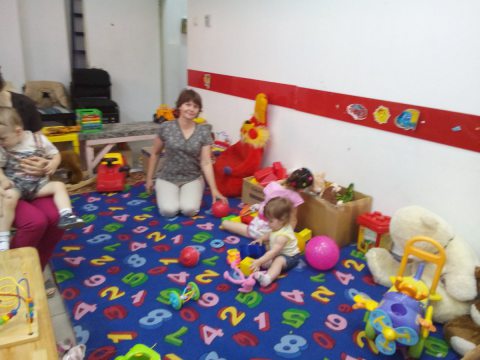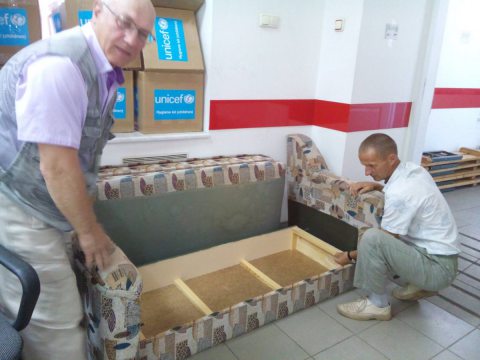Human rights activists on mission in Ukraine: We accumulate invaluable experience of humanitarian work
The first shift of Belarusian volunteers as part of the Human Rights Humanitarian Mission in Ukraine has left the team of the public initiative Station Kharkiv. They were replaced by two more Belarusians – Aleh Zhlutka and Marharyta Krasikava.
In order not to lose the accumulated experience and not to start from the scratch, there is a gradual rotation of the mission: two older volunteers stay to help newcomers join the work, then they are replaced by others, and former newcomers in turn transmit the experience to the new shift.
Belarusian volunteers provide various forms of assistance to temporarily displaced persons from the occupied territories and conflict-hit regions: receive, ship and distribute humanitarian aid, work on the hot line, interview refugees about the effectiveness of local government, social security, work with children.
“Working in the humanitarian mission in Ukraine,” says Leanid Autukhou, a volunteer from Haradok, Viciebsk region, “helps gain invaluable experience of self-organization of communities for effective legal and humanitarian assistance.” Station Kharkiv works as a living organism: there are warehouses, legal assistance, medical consultations, free food, baby diapers – and all this is done on a voluntary basis. This experience will be useful to us in our human rights work, and if necessary – in humanitarian activities.”
Aleh Zhlutka, who a few days ago arrived in Kharkiv, is convinced that “the experience gained here, in Kharkiv, is distinctive by relationships with the direct participants of many dramatic events, whether it’s violent confrontation in Kharkiv, or military operations in the East (which the IDPs tell us). Here you learn to think a little bit different. For example, you can see that people can enjoy every detail. But this experience does not go unnoticed. Whatever I learn, it will be certainly useful to me personally, as well as those who I may once help – either as I do it now, or simply by sharing my knowledge and skills.”
But the most important thing when working in the mission, according to Aleh Zhlutka, is being able to help others, to learn from the people who overcome adverse circumstances, as well as to know the truth about local events from the direct participants and witnesses or victims.
An activist from Viciebsk, Yan Dziarzhautsau, shares the position of his colleagues, saying that working as a volunteer in Ukraine “can help receive an experience that can be useful when working in any other country in similar circumstances. We will have some experience of where to start, how everything works, how the organization operates, because we ourselves are directly involved in doing what we are asked to do. We had to work physically, interview displaced persons, and even assist in resolving legal issues.”
More information about the work of the Belarusian volunteers can be found at section "Human Rights Humanitarian Mission in Ukraine" on our website or at the Facebook account of the mission.






















